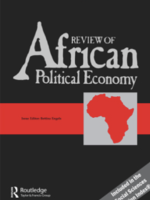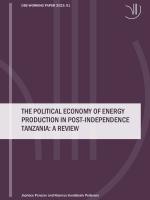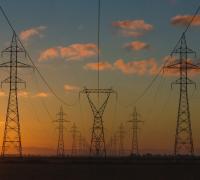Resource nationalism and energy transitions in lower-income countries
While development donors have promoted non-hydro renewable energy in sub-Saharan Africa, several countries have shied away from deploying solar and wind as sources of power on a larger scale. A new article published by Japhace Poncian and Rasmus Hundsbæk Pedersen explores why, pointing to the role of resource nationalism. The notion of resource nationalism originates in the petroleum and mining sectors where countries have sought to maximise the benefits from their extractive resources. The article uses resource nationalism as a lens that can also help understand the slow pace of Tanzania’s energy transition despite the country’s longstanding commitments in policies and plans.
A major factor behind the Tanzanian preference for large-scale natural gas and hydropower projects is thus the fact that these have tended to be controlled and owned by the state. This is a priority among decision-makers who worry about models for private, foreign, investors’ ownership that have been promoted in solar and wind. The emphasis on national sovereignty and ownership is also part of the reason why several large-scale private solar and wind projects have derailed over the years. Only with finance available for a government-owned project has Tanzania’s first large-scale solar power plant begun to materialize recently.
DIIS Experts




